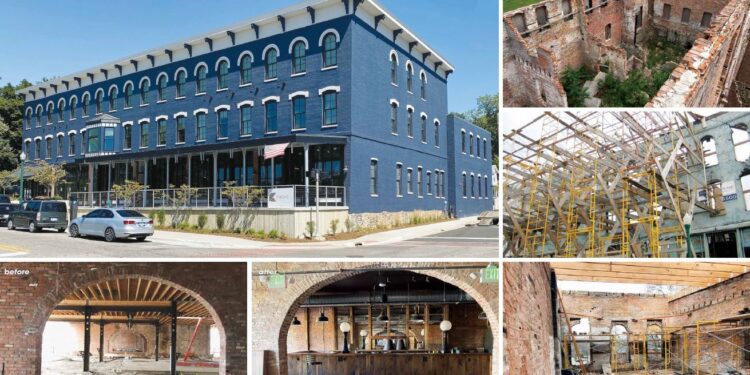Established in 2008, Triterra is an advisory firm based in Michigan, focusing on brownfield redevelopment, environmental consulting, and natural resource management. The firm is committed to delivering timely, creative tactics that tackle intricate environmental and development issues. Triterra’s clientele includes businesses, developers, property owners, financial institutions, legal representatives, municipalities, and various other organizations, carving out a reputation in the region by consistently addressing individual and community requirements that conform to regulatory standards and elevate local living conditions.
Co-founded by experienced professional Don McNabb, who serves as the CEO and strategic leader, Triterra demystifies the complex landscape of environmental regulations to ensure that property acquisition and development proceed without the risk of contamination, hazardous materials, derelict structures, unsafe water and soil, among other concerns.

The mission of Triterra is to alleviate the inherent barriers to land development, driven by a core belief that everyone is entitled to a safe living environment that caters to their health and primary needs. “We don’t want our office to be in a location where our staff feels unsafe. That’s why we are committed to cultivating dynamic, functional spaces free from unsafe structures,” emphasizes Don. “We also avoid areas that are impacted by ground contaminants, as they pose risks to both community health and wildlife, exacerbating the environmental crisis.”
In Michigan, where there is a significant deficit of 188,895 affordable housing units, Triterra plays a vital role in transforming outdated and dilapidated buildings into acceptable living spaces. Acknowledging that refurbishing older properties can be expensive and uncertain, the company utilizes its team’s extensive expertise to conceive and realize innovative solutions that mitigate costs and enhance the efficiency of the process.
Don has identified two predominant methods—demolishing a structure and starting anew or utilizing existing buildings. He acknowledges the undeniable value in selecting the latter but warns that it can sometimes incur more expenses and complications if the building is unsuitable for housing. Community importance is also a factor, as some historical buildings hold significance for local residents. Triterra evaluates all aspects of cases, offering tailored solutions focused on achieving the best outcomes from human, regulatory, and financial perspectives.
“While preserving the environment is always fundamental, there must be a business aspect involved. Overextending our recommendations risks jeopardizing our clients’ projects,” Don explains. “A healthy balance is essential, and we are committed to safeguarding both interests, ensuring that sustainability remains practical.”
With extensive experience, Triterra has facilitated numerous projects, ranging from straightforward to highly complex. Don recounts a notable complex case involving an old school building from the early 1900s. Once abandoned for decades, this historic site was successfully converted into 22 affordable housing units. The development process lasted over six years, concluding in 2012, and it has remained fully occupied since. Despite facing harsh winters with unreliable electricity and frozen plumbing, Triterra’s team remained steadfast in its commitment to foster a healthier, safer community.
“If it were simple, everyone would do it,” Don reflects. “Of course, simpler projects yield more profit and require less time, but it’s the challenging endeavors that leave a lasting, meaningful impact.”
In considering the procedures that Triterra follows, particularly for more nuanced projects, Don emphasizes the pivotal ‘yes or no’ stage, which determines the feasibility of a proposal. This is followed by due diligence, assessing economic viability and the actual needs of the building, leading to the final stage of restoration. This thorough procedure is crucial for the company, as it provides the comprehensive insight necessary for clients to make well-informed decisions.
“Every previous environmental firm I’ve been part of struggled with visibility, and Triterra is no exception. Recognizing what we do is challenging when it’s intangible,” Don concludes. “Especially on more difficult projects, it seems almost impossible. The truth is, I don’t need people to grasp our work; I want them to appreciate its significance. Environmental safety is intertwined with every aspect of life and is essential for cultivating safer, healthier, and more flourishing communities.”


